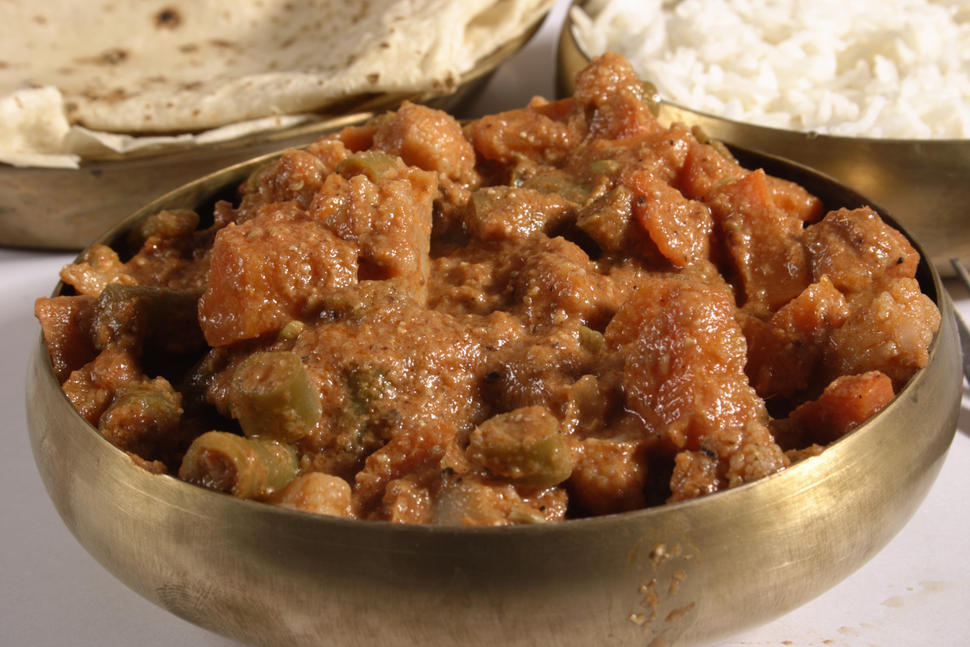Eating & drinking in India
Back to all travel tipsA trip to India is an opportunity to discover a world of spices and flavours. India should be thought of more as a continent than a country, each region offering a markedly different culture, and thus cuisine. But there's little doubt that a visit to India is an epicure’s delight. In this guide we give you the lowdown on the cuisines of four of India’s key areas, the north, east, south and west and recommend the best dishes from each. We also provide some sample prices to help you plan your daily expenses and finish with information on the rules around alcohol consumption on the subcontinent.
Must try dishes of north India: North Indian cooking is a fusion of Indian culinary traditions with the Central Asian influences that arrived in the Subcontinent throughout history. The most important of these influences came with the founding of the Mughal Empire in the 16th century; the Mughals changed local cuisine so much that the classic north Indian cuisine is now called Mughlai. Mughali food is mildly spiced but extremely rich, using ingredients such as cream, almonds, sultanas and saffron – the classic korma sauce is the best-known example. Our recommended dishes to try during a visit to north India:
- Kebabs in Lucknow
- Butter and other stuffed parathas, tandoori chicken and butter chicken in Amritsar
- Lal Maans in Rajasthan
- Nihari, street food snacks in Delhi
Must try dishes of east India: India’s east is a melting pot of different cultures and the food here is full of character. Cooking techniques include that of hills as well as plains, so there is a heady mix of fermented food and fresh produce. This part of India is dominated by the mighty Brahmaputra River and it is no coincidence that freshwater fish features heavily in the local cuisine, especially amongst the Bengal and Assam communities.
- Macher jhol (Bengali Fish Curry) in Kolkata
- Phagshapa (pork with rice) and Momos in Darjeeling and Sikkim
- Baanhgajor Lagot Gahori (Pork with bamboo shoots) and fish cooked in banana leaves in Assam
- Fish cooked in Bamboo in Nagaland
Must try dishes of south India: South Indian cuisine, largely invisible on our takeaway menus, is an unknown entity to many. As a general guide think less bread, meat, and sauce; more spice, rice, and fish. Keralan food is very much linked to the coast: lots of fresh seafood, and a notable influence from Arabic traders, particularly mopillah cuisine in northern Kerala. Our recommended dishes:
- Biriyani in Hyderabad
- Idlis, Dosas and Chettinad chicken in Tamil Nadu
- Banana leaf meals and fresh seafood in Kerala
Must try dishes of west India: Gujarati, Marathi and Goan dishes tend to be full of flavour. The real essence of Gujarati food lies in the exquisite blend of everyday vegetables and mild spices to create a palate-pleasing combination of sweet and sour flavours. Vegetables, lentils along with grains like wheat, rice, jowar and bajra constitute an integral part of the Maharashtrian diet. Breads are also given a lot of significance in Marathi cuisine and most main dishes will often be accompanied by some form of bread on the side. Mumbai has a sizeable Parsi population, who brought in their own distinct cuisine to the city.
- Pork vindaloo, prawn curry rice and butter-garlic fish in Goa
- Parsi cuisine in Mumbai
- Vegetable thali in Gujarat
Drinking in India
Alcohol prohibition in India is in force in the states of Bihar, Gujarat, Mizoram, and Nagaland. Alcohol is often prohibited for sale or consumption near major sites of worship such as the Golden Temple in Amritsar, the Meenakshi temple in Madurai and the banks of the River Ganges (including hotels and other properties) in Varanasi if you are in doubt it is best to check with your guide or hotel staff. With the diversity of religious belief in India, one may find oneself staying in a hotel run by devout followers of a religion which prohibits the consumption of alcohol, such as Islam or Jainism. To best respect your host’s wishes we suggest clarifying the rules on alcohol with the hotel staff before indulging on the hotel premises.
Gujarat: The home state of Gandhi has a sumptuary law in force that proscribes the manufacture, storage, sale, and consumption of alcoholic beverages. There are workarounds for foreign visitors, however. Overseas visitors and those from other parts of India can apply online for a permit which allows the purchase of alcohol from state sanctioned stores upon production of a physical copy of the permit.





